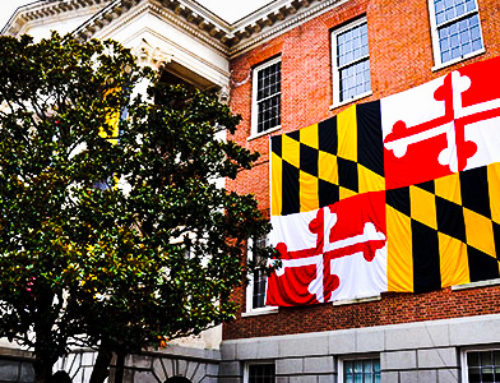View by Topic
Recent Articles
-
EPA Designates PFOA and PFOS as Hazardous Substances under Superfund LawSaturday, April 20th, 2024
-
Federal Government Finalizes New Efficiency Standards for LightbulbsSaturday, April 13th, 2024
-
2024 IECC is Final After Addressing Preemption IssuesSaturday, April 6th, 2024
-
Settlement Portends Broad Failure in Attempts to Ban Natural GasSaturday, March 30th, 2024
-
SEC Climate Disclosure Rule Stay and Venue Now in the 8th CircuitSaturday, March 23rd, 2024
View by Month/Year
“Green Building Law Update” Headlines
Recent Articles & News from
Stuart Kaplow’s blog
at GreenBuildingLawUpdate.com
- EPA Takes Action: PFOA and PFOS Now Hazardous Substances Under Superfund Law April 21, 2024
- Shedding Light on the Future: The Evolution of Lightbulbs in the Wake of New Energy Efficiency Standards April 14, 2024
- 2024 International Energy Conservation Code is Final After Addressing Preemption April 7, 2024
- Settlement Portends Broad Failure in Attempts to Ban Natural Gas March 31, 2024
Subscribe to the Green Building Law Update!
Stuart Kaplow brings his expertise and extensive experience to the table with his unique digital publication, "Green Building Law Update". Subscribers receive regular updates to keep them informed about important issues surrounding Environmental Law, Green Building & Real Estate Law, as well as the emerging demand for Environmental Social Governance (ESG).
Get fresh content through the lense of Stuart Kaplow's cutting-edge expertise, innovative commentary and insider perspective. Don't miss another issue! Subscribe below.
Emergency Bill Prohibits Creation of Most Residential Ground Rent Leases
Yesterday the House and Senate of Maryland General Assembly each unanimously passed identical bills and following upcoming votes in the other chamber, the Governor has announced his intention to sign SB 106/ HB 172, emergency Administration bills that retroactively prohibit the creation of most new residential ground rent leases.
Effective January 22, 2007, “the owner of a fee simple or leasehold estate in residential property that is used, intended to be used, or authorized to be used for four or fewer dwelling units may not create a reversionary interest in the property under a ground lease or a ground sublease for a term of years renewable forever subject to the payment of a periodic ground rent.”
History
While ground rents have existed in Maryland since colonial times, with some of the earliest known and still existing ground leases dating to 1750, recent print media attention to the modern harsh realities of failure to pay ground rent has resulted in a groundswell to forever alter this form of land ownership.
Most simply put, the purpose of ground rents has been to produce income for their owners. Maryland’s unique system of ground rents has been traced to wording in its 1632 colonial charter, from King Charles I of England to Cecilius Calvert (the second Lord Baltimore) that granted the land including what is now Maryland, but prohibited certain feudal tenures, specifically those that would reserve a rent in a grantor who has transferred fee simple title. The 99-year lease was devised to reserve a ground rent without violating Maryland’s colonial charter.
Ground rents in colonial times required the tenant to erect improvements on each 100 acre lot granted and Calvert collected ‘quitrents’. Calvert promised to pay the King two native American arrows and a fifth of all gold and silver discovered in Maryland, annually each Easter, although no gold or silver was discovered.
After 1689, when the British crown assumed direct control over the province of Maryland, direct land patents and grants were issued, but 99-year ground leases continued.
Prior to 1884, a ground rent could, by its terms, be redeemable or irredeemable. A redeemable ground rent would state the terms under which the tenant could redeem the lease and take fee simple ownership of the property. However, a tenant, even today, cannot take fee simple ownership of an irredeemable ground rent. When the General Assembly prohibited the creation of new irredeemable ground rents beginning April 9, 1884, the legislature also established a method of calculating the redemption value.
In 2003, the General Assembly established an alternative method for redeeming a ground rent if the tenant is unable to locate the ground rent holder, which had become a problem with some of the older ground rents. Under this method, the tenant must submit specified documentation and pay associated fees to the State Department of Assessments and Taxation.
The Modern Ground Rent
In the 20th Century, real estate developers, from time to time, used ground rents as part of their business strategy to reduce the purchase price to a home buyer, who might then be better able to afford a mortgage (on the improvements alone). In the earlier part of the century, a developer would sell houses and retain the ground rent as a steady long-term income source. Later in the century, developers began securitizing and selling the ground rents to finance further developments. Many of these ground rents were held by institutional investors who saw them as long-term, low-risk investments.
Ground rents generally have a 99-year term and renew perpetually. Ground rent, which often ranges from $24 to $240, is paid to the grantor (the ground rent holder) for the use of the property for the term of the lease in annual or semi-annual installments. Under a typical ground rent deed, the tenant agreed to pay all fees, taxes, and other costs associated with ownership of the property.
When a tenant fails to pay rent, the ground rent holder may bring an action for the past-due rent or for possession of the premises. In either case, the ground rent holder is limited by statute to three years’ past-due rent. Because the tenant only has a leasehold estate, a tenant whose property is seized in an ejectment action (an action to retake the premises) receives no other compensation. The ground rent holder is then free to release the property under the ground rent or sell the property in fee simple.
In 2003 the legislature established limits on the amounts that ground rent holders could receive as reimbursement for expenses received for actions to collect past due rent and for an ejectment action. A holder of a ground rent that is at least six months past due is entitled to reimbursement for actual expenses of up to $500 to collect the past-due amount. In an ejectment action, the ground rent holder is entitled to filing fees and court costs, costs related to process service or other notice, title searches up to $300, attorney’s fees up to $700, and taxes paid. It is this statutory scheme that is now perceived as abusive.
The number of residential properties subject to a ground rent is not easily discernable although State records indicate that 67,861 residential properties with a ground rent in Baltimore City have been transferred (e.g., by a deed of assignment) since 1982. There may be more than 120,000 residential properties in the City subject to a ground rent. There are also large properties subject to a ground lease in Baltimore County and lesser numbers in Anne Arundel County, Harford County, and elsewhere in the State. Note, none of the existing ground rents would be affected by the bill.
Also, commercial ground leases, which exist today in most instances as a financing vehicle, are not affected by the bill.
Other Legislation Pending
While leasehold estates of the type prohibited by the bill were recognized at common law and were not previously prohibited by statute for residential or commercial properties, SB 106/ HB 172 are the first of several pieces of legislation this legislative session that will forever alter Maryland’s unique Colonial system of ground rents.
Other legislation, scheduled for hearings next week, would eliminate ejectment as a remedy and cap legal fees and costs that the rent owners can charge (SB 396/ HB 463), while other bills would create a registry of ground leases (SB 622/ HB 580) and create a system to cause pre-1884 irredeemable ground rents to be redeemable (SB 397/ HB 452).
It also is significant that earlier this week, legislation (Bill 07-0584) was introduced before the Baltimore City Council seeking to extend existing law governing a tenant’s right of first refusal to apply to the proposed transfer of a ground rent.
Most But Not All New Residential Ground Leases Prohibited
It is all but certain that retroactive to January 22, 2007, newSection 8-111.2 of the Real Property Article, Annotated Code of Maryland, will prohibit the owner of a residential property that is used, intended to be used, or authorized to be used for four or fewer dwelling units from creating a ground lease or a ground sublease for a term of years renewable forever subject to the payment of a periodic ground rent.
Query, does the new law not permit creation of a ground lease for a term of 100 years (or 200 years) renewable for an additional 100 year term, but not “renewable forever”?









